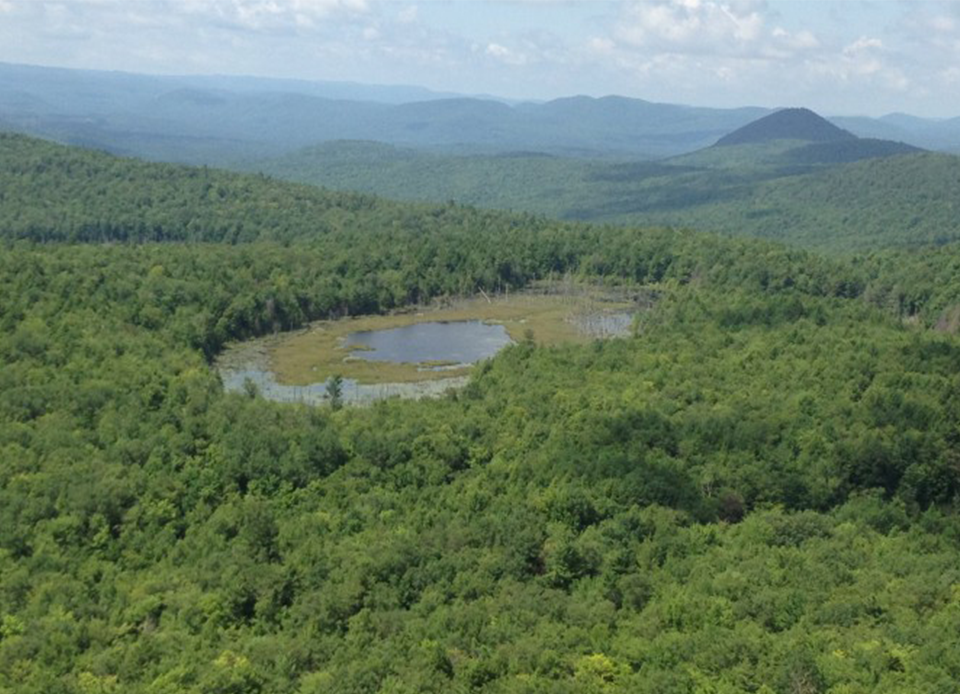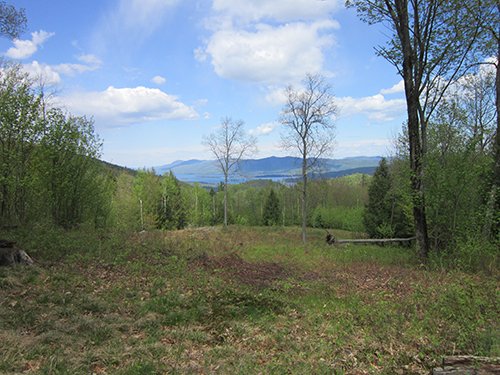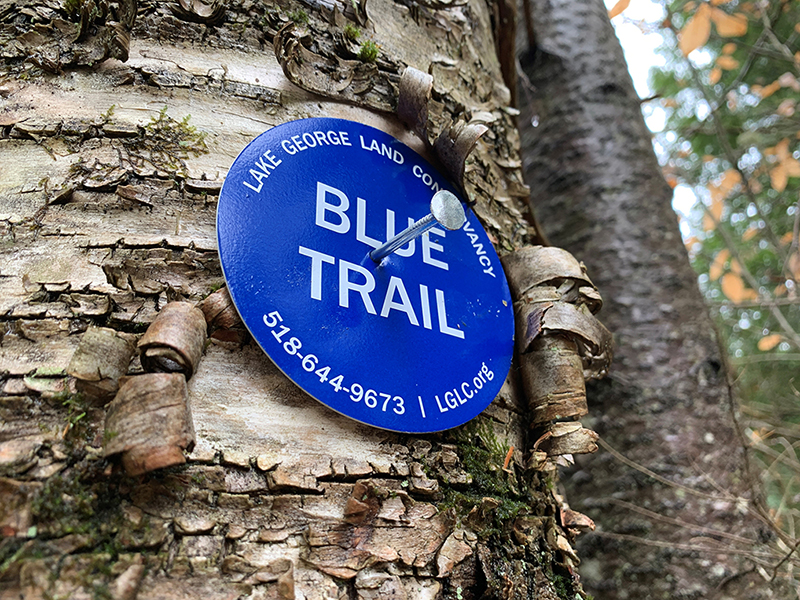Berry Pond
(NYS DEC)
TOWN OF LAKE GEORGE, LAKE LUZERNE AND WARRENSBURG
From the kiosk, follow the trail with LGLC’s blue markers through the Rec. Center trail system. Look carefully for a number of directional changes. After making a sharp left turn, the Blue Trail ascends 280 feet over 0.4 miles to the Berry Pond land boundary. It then descends gradually for another 0.2 miles to the intersection with the Orange Trail. Hikers can then choose to continue along the Blue Trail for scenic views or the orange trail to Berry Pond itself.

The Blue Trail climbs 520 feet over about 1 mile to reach views looking north at Lake George (1,620-ft elevation) and south at Butler Pond and Vermont (1,640-ft elevation). It then descends gradually on a dirt road to reconnect with the Orange Trail just north of the Berry Pond loop.
From the initial junction of the Orange and Blue trails, the Orange Trail follows a dirt road for 0.56 miles (300-ft elevation gain) to the second junction with the Blue Trail. The Orange Trail then leads southwest for 0.1 miles along a dirt road to the Berry Pond loop. Following the loop clockwise, the trail continues along the dirt road for approximately 0.25 miles before cutting into the woods for a forested, pond-side trail for the remaining 0.75 miles of the loop.

Please note: Information provided here was accurate as of 2015 and trail conditions may have changed since written. This property and its trails are owned and managed by the NYS DEC, not the LGLC. If you encounter issues on the trails please contact the local DEC Forest Ranger Evan Donegan at 518-656-9086 or the DEC Regional Office at 518-897-1300.

The Berry Pond Preserve is subject to State Forest Preserve rules. Please follow DEC rules when visiting the preserve.
Motorized recreational vehicles are NOT allowed, except for snowmobiles on designated trails.
Please park only in the preserve’s designated area at the Village of Lake George Recreational Center lot.
Hunting and trapping is permitted according to New York State regulations. Please use caution when hiking during hunting seasons: wear bright colors and hike in groups. Hunters – please be aware of hikers and hunt away from trails. Please follow NYS DEC’s Hunting Safety Rules
To report any problems or acquire permits, contact DEC Forest Ranger Evan Donegan at 518-656-9086 or the DEC Regional Office at 518-897-1300. For emergencies, call DEC Dispatch at 518-891-0235.
Protecting the land that protects the lake since 1988. The Lake George Land Conservancy is an accredited not-for-profit land trust dedicated to working with willing landowners and other partners to protect the world-renowned water quality of Lake George and to permanently preserve the natural, scenic, historical and recreational resources of the Lake George Region.
Notifications